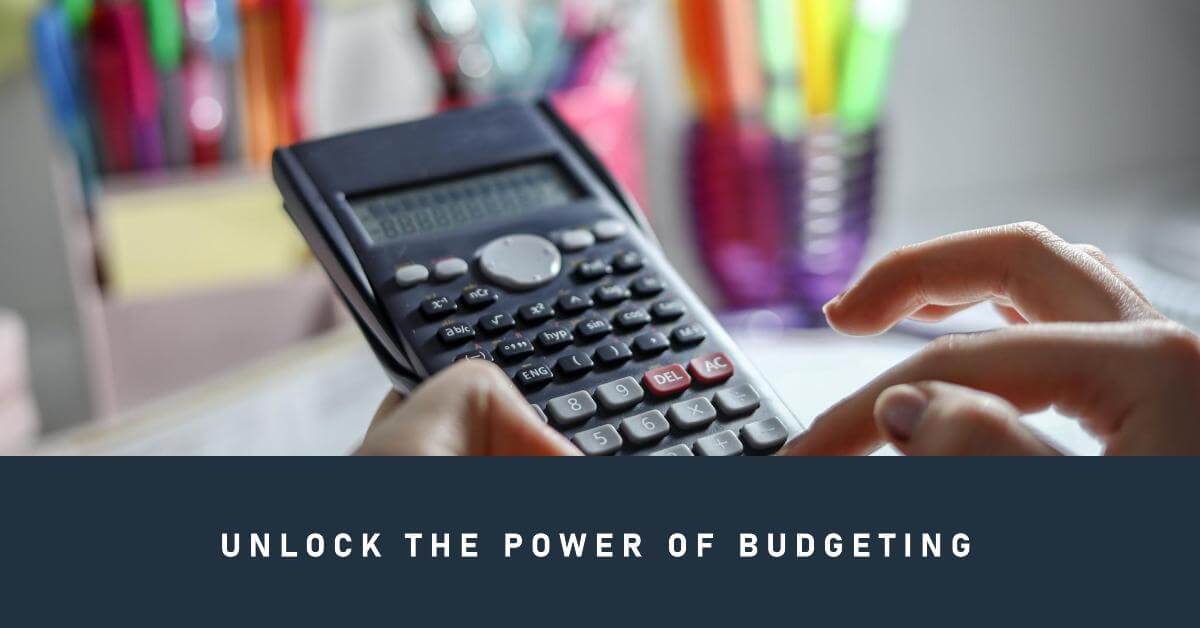
In today's fast-paced world, where managing expenses is a crucial aspect of personal finance, a budget calculator has become an essential tool. With the help of a budget calculator, you can effectively monitor your income and expenses, and keep a check on your spending habits. In this article, we will discuss what a budget calculator is, why you need one, and how to use it.
Table of Contents
- What is a budget calculator?
- Why do you need a budget calculator?
- How does a budget calculator work?
- Determine your income
- List all your expenses
- Categorize your expenses
- Enter your income and expenses
- Analyze the results
- Benefits of using a budget calculator
- Tips for using a budget calculator effectively
- Common mistakes to avoid when using a budget calculator
- Frequently asked questions (FAQs)
- Conclusion
What is a budget calculator?
A budget calculator is a financial tool that helps you plan your expenses based on your income. It is an easy-to-use software that allows you to calculate your monthly expenses and monitor your spending habits. The tool can be accessed through the internet or downloaded on your device, and it helps you track your finances and make better financial decisions.
Why do you need a budget calculator?
Managing finances is essential to avoid overspending, debts, and financial difficulties. A budget calculator helps you identify areas where you can cut back on expenses, plan for emergencies, and save for future expenses. By using a budget calculator, you can:
- Track your expenses and manage your cash flow
- Identify areas where you can reduce your expenses
- Set financial goals and plan for the future
- Avoid overspending and debts
- Monitor your progress towards your financial goals
How does a budget calculator work?
A budget calculator works by calculating your total income and expenses and analyzing the results to determine your net cash flow. The tool helps you determine whether you are spending more than you earn, and allows you to adjust your expenses accordingly. A budget calculator works in the following steps:
1. Determine your income
The first step in using a budget calculator is to determine your income. This includes your salary, wages, bonuses, and any other source of income. You should calculate your income after taxes and deductions to get an accurate estimate of your net income.
2. List all your expenses
The next step is to list all your expenses. This includes your monthly bills, rent, groceries, transportation, and any other expenses you incur. You should include both fixed and variable expenses, as well as any irregular expenses that occur less frequently.
3. Categorize your expenses
After listing all your expenses, you should categorize them into different groups. This can include housing, utilities, food, transportation, entertainment, and other categories that are relevant to your spending habits.
4. Enter your income and expenses
Once you have categorized your expenses, you can enter them into the budget calculator. The tool will calculate your total income and expenses and determine your net cash flow. You can adjust your expenses to see how they impact your net cash flow.
5. Analyze the results
Finally, you should analyze the results to determine whether you are spending more than you earn. If you have a negative net cash flow, you should adjust your expenses to reduce your spending. If you have a positive net cash flow, you can consider saving or investing the extra money.
Benefits of using a budget calculator
Using a budget calculator has several benefits, including:
- Helps you identify areas where you can cut back on expenses
- Helps you plan for future expenses and financial goals
- Allows you to track your spending habits and adjust your budget accordingly
- Helps you avoid overspending and accumulating debts
- Gives you a better understanding of your cash flow and financial situation
- Provides a visual representation of your income and expenses
- Helps you make informed financial decisions
Tips for using a budget calculator effectively
To use a budget calculator effectively, you should:
- Be honest about your income and expenses
- Regularly update your budget to reflect any changes in your financial situation
- Categorize your expenses accurately to get a better understanding of your spending habits
- Set realistic financial goals and track your progress towards achieving them
- Be open to adjusting your expenses to achieve your financial goals
- Use the tool to make informed financial decisions
- Review your budget regularly to ensure you are on track to achieving your financial goals
Common mistakes to avoid when using a budget calculator
Some common mistakes to avoid when using a budget calculator include:
- Underestimating your expenses or overestimating your income
- Failing to categorize your expenses accurately
- Neglecting to include irregular expenses
- Not adjusting your budget regularly
- Setting unrealistic financial goals
- Not sticking to your budget
- Failing to review your budget regularly
By avoiding these mistakes, you can effectively use a budget calculator to manage your finances and achieve your financial goals.
Frequently asked questions (FAQs)
Can I use a budget calculator if I have an irregular income?
- Yes, you can still use a budget calculator if you have an irregular income. You should estimate your income based on an average of your earnings over a certain period of time.
How often should I review my budget?
- You should review your budget at least once a month to ensure that you are staying on track with your financial goals.
What should I do if my expenses exceed my income?
- If your expenses exceed your income, you should adjust your budget to reduce your spending. Look for areas where you can cut back on expenses, such as entertainment or dining out.
Can a budget calculator help me save money?
- Yes, a budget calculator can help you save money by identifying areas where you can cut back on expenses and set financial goals.
Can I use a budget calculator for business finances?
- Yes, you can use a budget calculator for business finances. It can help you monitor your cash flow and make better financial decisions for your business.
Conclusion
In conclusion, a budget calculator is an essential tool for managing your finances effectively. It helps you monitor your income and expenses, identify areas where you can cut back on expenses, and set financial goals. By following the tips outlined in this article, you learned how to use a budget calculator effectively and avoid common mistakes. Use this tool consistently to stay on track with your financial goals and achieve financial stability.


